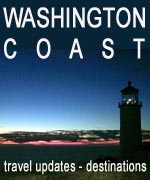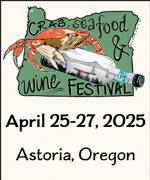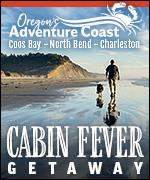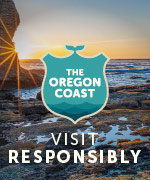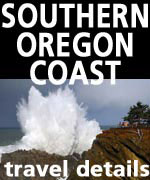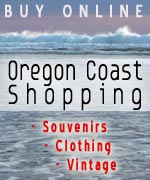New Guide Lets You Get To Know Individual Oregon Coast Whales
Published 12/30/21 at 5:22 PM PST
By Oregon Coast Beach Connection staff
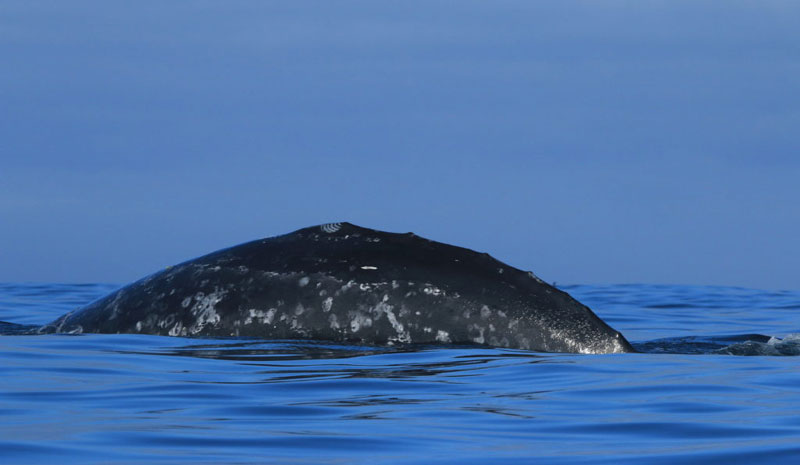
Includes exclusive listings; some specials in winter
In Cannon Beach:
Includes rentals not listed anywhere else
In Manzanita, Wheeler, Rockaway Beach:
Some specials for winter
In Pacific City, Oceanside:
Some specials for winter
In Lincoln City:
Some specials for winter
In Depoe Bay, Gleneden Beach:
Some specials for winter
In Newport:
Look for some specials
In Waldport
Some specials for winter
In Yachats, Florence
Some specials for winter
Southern Oregon Coast Hotels / Lodgings
Reedsport to Brookings, places to stay; winter deals
(Oregon Coast) – Some Oregon coast gray whales have become little celebrities, like Scarback (also known as Scarlett). Others have been recognizable to whale watching fans along the coastline, while plenty are simply not known to the public. (Photo courtesy OSU)
Now, you can get to know individual gray whales that are regulars to the Oregon coast – and their backstories. An expansive new website put out by OSU and the Hatfield Marine Science Center, www.individuwhale.com, takes an all-around yet detailed look at the cetacean beauties that regularly cruise through these waters.
Individuwhale.com is the product of years of research from the Geospatial Ecology of Marine Megafauna Laboratory at Oregon State University's Marine Mammal Institute. Scientists there have cataloged some 190 gray whales that spend time in Oregon coast waters, as well as California, the Washington coast and southern Canada. However, there's only eight featured on the website so far, but they are known to loiter off these shores.
Yet there's more to their story than just photos and listings.
Leigh Torres, principal investigator of the Geospatial Ecology of Marine Megafauna Laboratory at OSU's Marine Mammal Institute, said all eight of these whale listings contain bios of sorts – a rather impressive gathering of background information on their lives. For instance, the whale known as Roller Skate has a damaged fluke, where part of it was lost due to entanglement with fishing gear. Solé has a favorite foraging area along the coast that she returns to each year.
The point of the site is that you can now meet these giants, only seen from whale watch tours or from a distance. Their identifying marks are clearly displayed, and you can find out about their major life events. Yet you can also see how human interaction affects them, thus better understanding these animals.
“We wanted to share with Oregonians, and the public in general, the stories of these whales because they are residents of Oregon like us, and they have personalities and stories to tell,” said Torres. “These whales have interesting lives that we've learned a lot about over the years through our research.”
That research focuses on what is called the Pacific Coast Feeding Group, and included what were known as annual “health check-ups” on the whales that began in 2016. They utilized drone technology to follow the whales, ships to pick up their stool samples from the ocean to check reproduction and stress, along with watching their behavior and capturing images of them.
From that, they were able to piece together some major life changes of the grays, including injuries, which often occurred because of their interaction with humans.
The group gave them nicknames like Orange Knuckles, Equal or Roller Skate – monikers that sound like the call signs from Battlestar Galactica.
For example, Roller Skate was first identified as a calf in 2015. In 2019, she was spotted with fishing line entangled around her fluke. In 2020, the researchers documented her again in the same area, according to Lisa Hildebrand, a doctoral student with the program who helped created the website.
“She survived a very gnarly, embedded wound, and part of her fluke was effectively amputated,” Hildebrand said. “She dives differently now than she did before the injury.”
Another example: Equal has a mark left over from an encounter with a boat propeller.
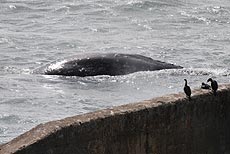 Scarlett is the biggest celebrity, often seen in Depoe Bay and Newport. Hildebrand said that whale has been seen every year they go out and has survived some major trauma.
Scarlett is the biggest celebrity, often seen in Depoe Bay and Newport. Hildebrand said that whale has been seen every year they go out and has survived some major trauma.
“She's a resilient whale who recovered from this huge wound on her back and then was able to successfully reproduce,” she said.
The IndividuWhale project was funded in part by Oregon Sea Grant and the Marine Mammal Institute. Erik Urdahl, a website developer, donated his services to build the site.
All of this has allowed scientists to do what Torres called some “really cool science” when it comes to whales off the Oregon coast. Yet a large part of the mission here is to educate the public on the threats facing Oregon's gray whale population, caused by noise, fishing gear, propellers, and the way their food sources are changes because of human-caused climate change.
Sure, the site is about an extra layer to tourism fun on the coastline, but there are some important points not to be missed.
“We want people to understand the connection between their behavior and these individual whales,” Torres said. “We're trying to reach those everyday ocean users. If everyone changes one behavior, like slowing down while boating near the reefs where gray whales feed, reducing use of plastics that pollute the ocean and removing recreational crabbing gear promptly so animals don't get tangled in it, these are all things that can make a huge difference.”
See Oregon Coast Whales News as well
Oregon Coast Hotels in this area - South Coast Hotels - Where to eat - Maps - Virtual Tours
Cannon Beach Lodging
Nehalem Bay Lodgings
Manzanita Hotels, Lodging
Three Capes Lodging
Pacific City Hotels, Lodging
Lincoln City Lodging
Depoe Bay Lodging
Newport Lodging
Waldport Lodging
Yachats Lodging
Oregon Coast Vacation Rentals
Oregon Coast Lodging Specials
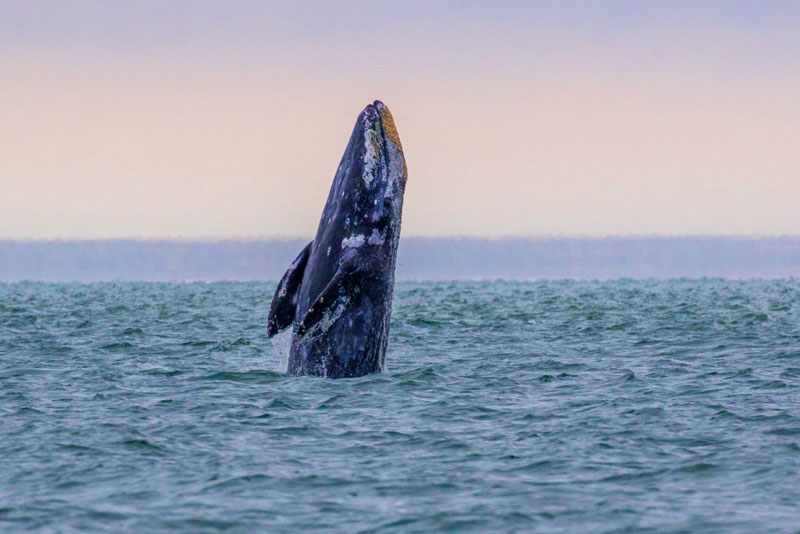
Courtesy Oregon State Parks
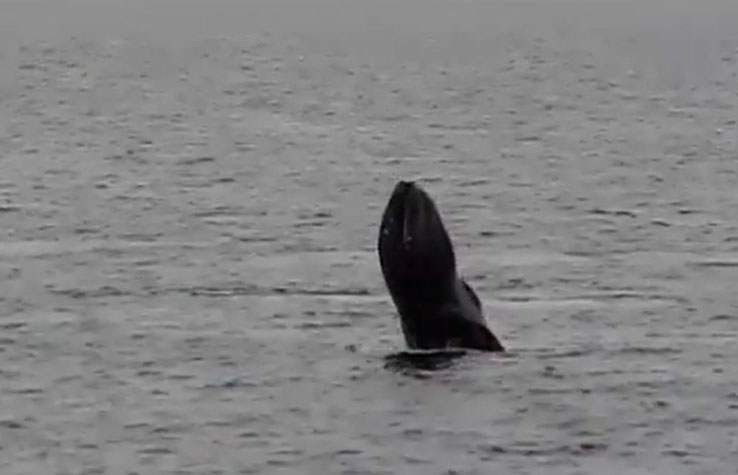
Photo courtesy Dave Foley, Port Orford Whale Watch Group
More About Oregon Coast hotels, lodging.....
More About Oregon Coast Restaurants, Dining.....
LATEST Related Oregon Coast Articles
State park at Port Orford was closed for more than a week
2026 Beachcombers 'n Glass Float Expo Brings Real Glass Floats to Washington ...
Feb 14 through March 8 they're dropped; Expo at Ocean Shores March 7?8. Washington events
Wildlife Officials Offer Rewards for Info in Multiple Oregon Gray Wolf Poachings
The latest in southern Oregon, preceded by others in the east
Some Minor Traffic Issues / Construction for Lincoln City, OR 18B to Oregon C...
Work begins next week in Lincoln City and Willamina / Sheridan
Train Derailment Shuts Down Some Central Oregon Coast Roads Briefly
It appears as if part of a train trestle gave way. Newport, Toledo, Depoe Bay. Traffic
Seaside Event Brings Sea Rescue History of Oregon / Washington Coast To Life
January 29 at 6 p.m. at Seaside Brewing: the precursor to the US Coast Guard. Seaside events
Last Night's Aurora Shots from Oregon Coast
A strong storm seen from Newport, Bandon, Port Angeles, Florence, Pacific City, Cannon Beach and more. Astronomy. Sciences
South Oregon Coast Gets Yummy: Charleston Crab Feed, Robert Burns Celebration
22nd Annual Burns event Feb 7; 41st Charleston Crab Feed Feb 14. Coos Bay events
Back to Oregon Coast
Contact Advertise on BeachConnection.net
All Content, unless otherwise attributed, copyright BeachConnection.net Unauthorized use or publication is not permitted





